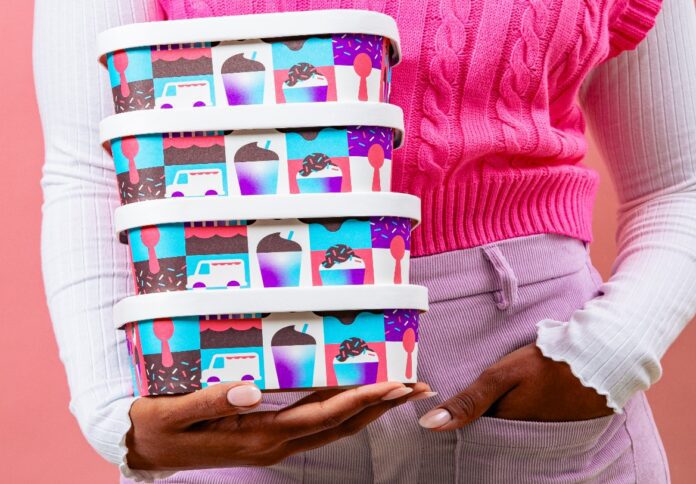
BioPak has announced a partnership with Baskin-Robbins Australia, aimed at transitioning the ice-cream brand towards more sustainable packaging and waste management solutions.
The new collaboration will help Baskin-Robbins avoid approximately 604,745 kilograms of fossil fuel plastic each month, with one of the most notable changes being the replacement of the iconic pink plastic spoon.
The spoon will now be made from FSC-certified birchwood, offering a sustainable alternative without compromising the brand’s signature colour, BioPak said in a news release.
Beyond packaging, the partnership extends into community and environmental efforts through BioPak’s Give Back Fund.
Since joining forces, Baskin-Robbins has helped plant 22 trees with Rainforest Rescue, donated 493 meals with OzHarvest, and positively impacted 378 lives through MedEarth, showcasing a broader commitment to social responsibility.
Gaurav Sharma, head of Commercial for Baskin-Robbins Australia, highlighted the strategic importance of the partnership, emphasizing the company’s long-term dedication to sustainability.
“Transformation is now embedded in our everyday culture, and BioPak has proven to be a mature, stable, and invaluable partner in our packaging journey,” Sharma stated.
“Despite the common perception that sustainability increases costs, we successfully reduced packaging expenses across all items through innovation and collaboration. This achievement would not have been possible without BioPak’s dedicated support, enabling us to make smart decisions and leverage economies of scale.”
BioPak CEO Gary Smith expressed pride in the partnership, emphasising the shift toward compostable alternatives.
“We are incredibly proud to work with Baskin-Robbins Australia on making this switch to compostable alternatives,” Smith said.
“As more companies make a conscious effort to put the planet first, what we are continuing to see is a ripple effect for the wider industry. Our products become more accessible, helping to bridge the gap and get one step closer to building circular solutions in the food service industry.”
In addition to sustainable packaging, Baskin-Robbins is working with Compost Connect to enhance its organic waste stream management, ensuring that compostable packaging and food waste are collected and converted into nutrient-rich compost.




















